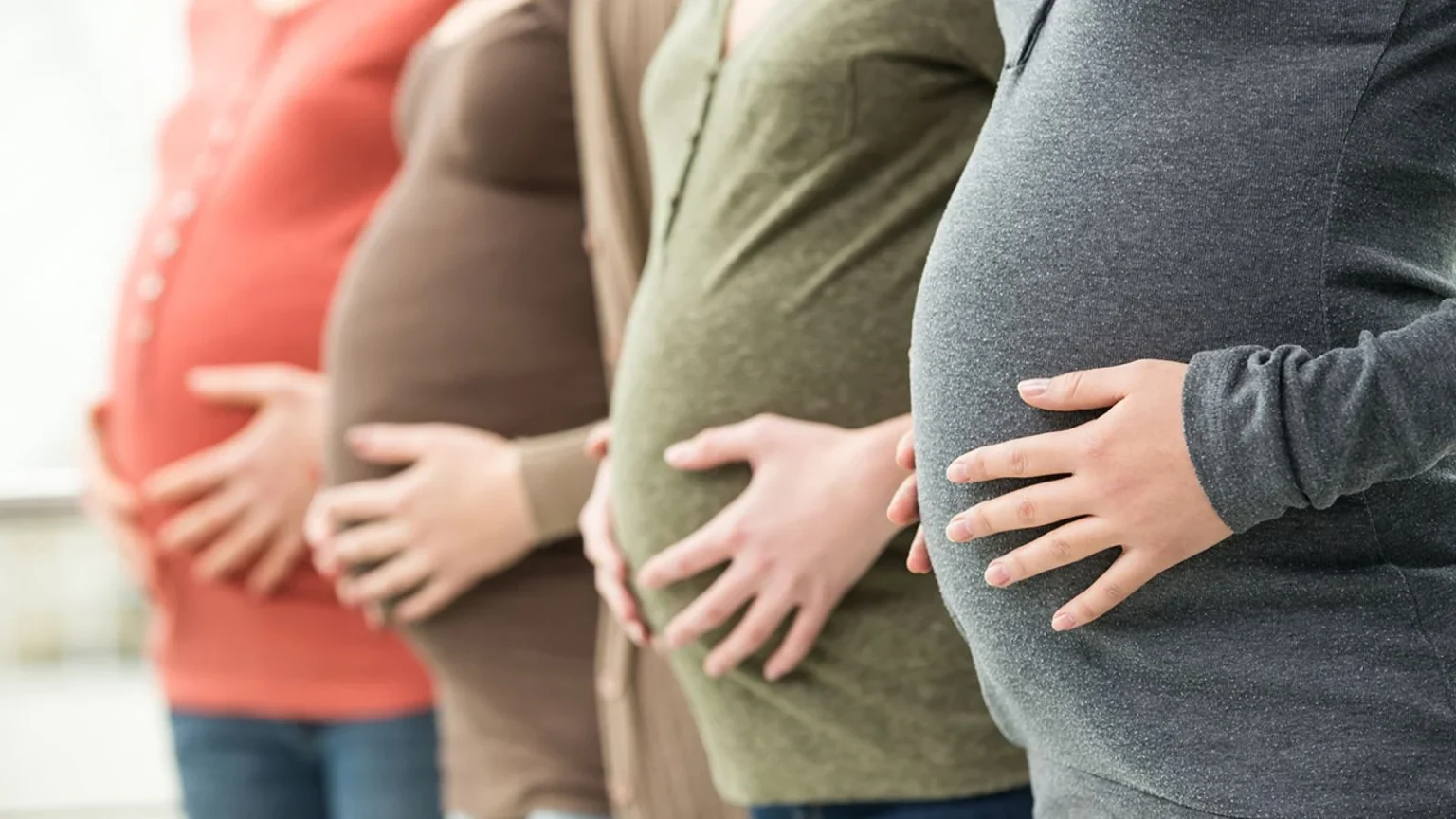News
Heat wave can trigger miscarriage, premature delivery, maternal experts warn

Maternal experts say the risk of miscarriage, early labour and preterm delivery is heightened during heat waves.
They also said heat waves can cause severe dehydration, tiredness, heat exhaustion and hypotension in pregnant women due to fluid reduction in the body.
While speaking with PUNCH Healthwise, the maternal health experts urged pregnant women to avoid walking in the sun, take water intermittently and stay in well-ventilated areas during this period
The United Nations Children’s Fund says heat waves happen when the temperature is higher than usual for several days.
It noted that heat waves can be extremely uncomfortable and pose serious health risks for infants, children, pregnant women and the elderly.
According to UNICEF, extreme heat can lead to heat stroke and fatalities, noting that heat waves have become more frequent, longer and severe due to climate change.
PUNCH Healthwise reported recently that the Nigerian Metrological Agency predicted that the heat wave would persist for some time.
NiMET predicted that fainting, chickenpox disease, measles, heat rash, weakness of the body, slight fever, dry lips, heat-related illnesses, respiratory issues and increased vulnerability to chronic conditions will be more rampant during periods of extreme heat.
PUNCH Healthwise had also reported that environmentalists called for the restoration of forest habitats to help reduce the impact of the ongoing heat wave across the country.
Commenting on the issue, a professor and Consultant Obstetrician and Gynaecologist at the University of Ilorin, Kwara State, Adegboyega Fawole, said that heat waves have more adverse effects on pregnant women and children than non-pregnant women and adults.
He stated that children have small body surfaces and weight and when exposed to heat waves would suffer dehydration.
Fawole said,
“A pregnant woman has a body surface that is at that time going through some changes that will make her need more water than when she was not pregnant. Pregnant women get dehydrated easily and quickly.
“For pregnant women in their first trimester, extreme heat waves could cause changes in the system where the body is forming the baby. This period is the time that the organs are formed in the growing foetus. This could have changes that could cause abnormalities in these foetuses.
“Also, when the foetus is ill, there is a higher risk of miscarriage and early birth, which might make the outcome of the pregnancy unpalatable to the mother.
“For the baby born prematurely, it causes more difficulty in care as cost and survival is always guarded depending on the age.”
The don urged pregnant women during this period to work in a well-ventilated and cool environment and refrain from walking in the sun.
He also advised them to wear light clothes and take cold baths as much as possible.
As the heat wave progresses in the country, Fawole recommends, “We could cold baths at any time and as much as possible. There is also a recommendation to have a cold towel handy to mop areas that one thinks are too hot, or if one gets uncomfortable.”
The don also said walking in the sun for too long should be discouraged, noting that if such occurs, water should be taken intermittently.
“During this heat wave period, we need to stay inside more, engage in indoor games, and encourage more games between children and parents, children and children, and between parents so that everybody is protected.
“There is a need to drink more water and cool the body by getting a cold towel handy to mop the body if need be. There is the need to use a fan if available but it should not be positioned directly to the face because it blows hot air into the nostrils and that may cause irritation, dryness and other side effects.
“When air conditioners are available, it is perfect and helps the body to be cool to achieve more productivity and better health,” the maternal expert stated.
An Honorary Consultant Obstetrician Gynaecologist at the University of Ilorin Teaching Hospital, Prof Ishaq Abdul, said that the body of pregnant women needs 30 per cent more water due to the increase in blood volume, noting that dehydration caused by the heat wave can negatively affect their body mechanisms
He urged pregnant women to avoid walking in the sun during heat waves, adding, “In mild forms, there might not be any problem as a pregnant woman can survive but there is a need to drink water intermittently and avoid the heat. Walking about in the heat can compound dehydration, especially if there is already so much water loss while indoors.”
Abdul urged communities and families to support pregnant women by ensuring that they have access to a cool environment at home and workplace.
“Heat wave is a serious issue and there is a need to make the society better in terms of having constant electricity supply so that there will be fans and cooling systems in homes and offices,” he added.
Abdul advised parents and caregivers to give children more water during this period, warning them to “avoid giving juices because it can lead to diarrhoea. The best thing is to drink water to stay dehydrated.”
News
26 Nigerian Soldiers Feared Dead In Boko Haram IED Blast In Borno, 20 Others Wounded

Tension as no fewer than 26 soldiers were reportedly killed when their truck hit an improvised explosive device in restive Borno State, Northeast Nigeria.
Another 20 soldiers were also reported to have been seriously wounded and taken to the 7 Division of the Nigerian Army hospital in Maiduguri, the state capital.
Military sources on Tuesday evening revealed that the incident occurred when a military truck conveying soldiers from Damboa to Maiduguri hit a landmine.
According to the source, “Twenty-six Nigerian soldiers were killed today (Tuesday) as they were moving from Damboa to Maiduguri, Borno State capital. The incident happened when their truck hit a landmine, killing 26 soldiers on the spot. Twenty other soldiers were equally wounded and have been taken to the 7 Division, Nigerian Army Hospital for treatment.”
The deadly blast one of sources who pleaded anonymity said occurred while the handing over ceremony of the former General Officer Commanding 7 Division of the Nigerian Army, Major General Haruna, to the new GOC for the Division, Brig-Gen. V. I. Una Nwachukwu, was taking place.
The incident comes amid increasing violence in northeast Nigeria in recent days, with the death toll rising to at least 50 people.
The region has been plagued for decades by armed groups, including the ISIL affiliate in West Africa Province (ISWAP) and Boko Haram, with violence flaring up in recent days.
The Islamic State’s West Africa Province (ISWAP) has reportedly claimed responsibility for the attack in a statement on Telegram on Tuesday.
Borno State Governor, Babagana Umara Zulum, had earlier told Nigeria’s defence minister and military chiefs that Boko Haram and ISWAP were entrenching themselves in Lake Chad islands, Sambisa Forest, and Mandara mountains on the border with Cameroon due to “military setbacks.”
Meanwhile, the military has yet to confirm the incident as efforts to speak with the Acting Director, Nigeria Army Public Relations, Lieutenant Colonel Apolonia Anele were unsuccessful as she could not be reached on telephone as at the time of filing this report.
SAHARA REPORTERS
News
SAD! Professor’s son takes own life inside varsity staff quarters

Rilokwah Jatau, a 23-year-old student of Nasarawa State University, Keffi (NSUK), was found dead in an apparent suicide in the university’s senior staff quarters.
The discovery was made on April 27, 2025, by Emmanuel Gyawo, a security officer at the university, who was directed by Professor Shedrack Jatau to check on his son.
Upon arriving at the residence, Gyawo found Rilokwah hanging from the ceiling.
Professor Jatau, who was reportedly out of state at the time, was informed of the incident. A team of police detectives, led by the Divisional Crime Officer (DCO) of Angwan Lambu, was dispatched to the scene.
The body showed no signs of violence, and no suicide note was found. Rilokwah was rushed to the Federal Medical Centre (FMC) in Keffi, where he was confirmed dead by a medical doctor. His body has been deposited in the hospital morgue.
Police sources say investigations are ongoing to determine the circumstances surrounding the incident.
News
FG cancels scholarship programmes abroad

The Minister of Education, Dr Tunji Alausa, has announced the discontinuation of the Bilateral Education Agreement (BEA) scholarship programme.
Alausa made this known on Tuesday in Abuja during a courtesy visit by newly elected officials of the National Association of Nigerian Students (NANS).
He described the BEA programme as an inefficient use of public resources, noting that many of the courses pursued abroad under the scheme were readily available in Nigerian universities.
“I was asked to approve N650 million for 60 students going to Morocco under the BEA programme when I assumed office in 2024.
“I refused. It’s not fair to the majority of Nigerian students,” Alausa said.
The minister expressed dissatisfaction with the behaviour of some beneficiaries, who he claimed had resorted to “blackmail” on social media over delayed allowances.
The News Agency of Nigeria (NAN) reports that several BEA scholars had previously accused the Federal Government of abandoning them and failing to pay their entitlements.
However, the government recently clarified that all supplementary allowances had been paid up to December 2024.
Established through diplomatic partnerships, the BEA programme enabled Nigerian students to study in countries such as China, Russia, Algeria, Hungary, Morocco, Egypt, and Serbia.
Alausa said the government would now redirect BEA funds toward domestic scholarship schemes to benefit a larger number of students.
“I reviewed the courses, some students were sent to Algeria, a French-speaking country, to study English, Psychology, and Sociology, programmes we offer better here in Nigeria,” he said.
He criticised the lack of academic oversight, revealing that scholars received free annual travel without proper performance monitoring.
“In 2025 alone, the government planned to spend N9 billion on just 1,200 students.
“That’s unjust when millions of students in Nigeria receive no support. Every single course these students are studying abroad is available in Nigerian universities,” he said.
Alausa stressed that while current beneficiaries would be allowed to complete their programmes, the BEA scheme would not continue beyond 2025.
“We are cancelling the BEA. It is not the best use of public funds. The money will now be used to fund local scholarships and support more Nigerian students,” he said.
Earlier, the newly elected NANS President, Olushola Oladoja, commended the minister for reforms and progress achieved since assuming office. (NAN)
-

 News21 hours ago
News21 hours agoJust in: Popular Nigerian billionaire, E-Money nabbed by EFCC
-

 News22 hours ago
News22 hours agoKing Sunny Ade’s family opens up over his whereabouts after daughter’s alarm
-

 Politics18 hours ago
Politics18 hours agoJust in: Ex- Gov Okowa accepts betraying Southern Nigeria, laments running with Atiku
-

 Metro6 hours ago
Metro6 hours agoGunmen storm University of Benin teaching hospital, kill doctor
-

 News23 hours ago
News23 hours agoEx-DIG,Olofu debunks online newspaper report, says ” I retired from NPF meritously after 35yrs service
-

 News18 hours ago
News18 hours agoBoko Haram Kill Mourners, Kidnap Others In Borno
-

 Metro6 hours ago
Metro6 hours agoFCTA destroys 601 motorbikes over violations
-

 News6 hours ago
News6 hours agoJust in: FG declares tomorrow public holiday





